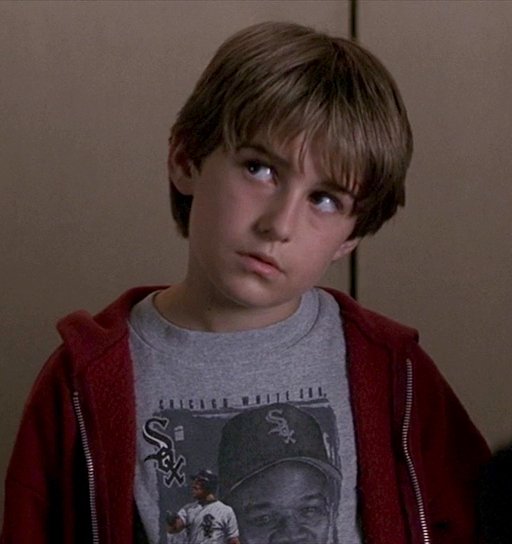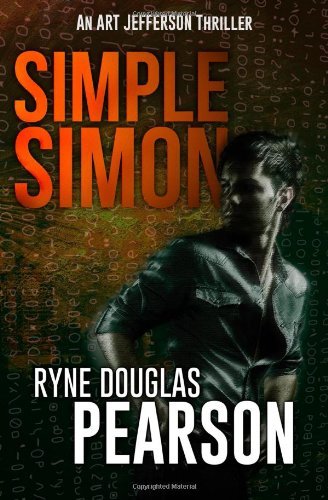Miko Hughes is a Magic Fantasy Autistic Genius in the Appalling Autismsploitation Thriller Mercury Rising
This is the second entry in Autism in Entertainment, a new column devoted to covering films and television shows prominently involving Autistic characters
In the 1998 thriller Mercury Rising Bruce Willis plays pretty much the same character he plays in all of his movies, a tough yet sensitive law enforcement officer who has been through hell yet stubbornly holds onto his humanity and decency.
When we’re introduced to Willis’ Art Jefferson he’s working undercover as a militia man in a bank robbery that goes awry, resulting in the violent death of a young man Art had come to like.
Poor Art, the hero of a series of pulp novels by Ryne Douglas Pearson that are read exclusively by businessmen on airplane, is devastated by the death.
He keeps flashing back to it during key moments in the film to remind us of this formative trauma. Mercury Rising does not believe in the concept of show, don’t tell. It feels instead that you should tell, and then tell some more, and then do some additional telling in case anyone in the audience is confused.
Art was seconds away from walking everyone out of the bank, safe and sound, and those impatient bastards had to ruin everything. The frustrated FBI agent waves a gun in a superior’s face in frustration and is rewarded with a tedious desk job as a reward.
During the bank robbery Art gobbles down pills to let us know that he has a dependency to downers that he will heroically overcome during a narratively appropriate moment.
Usually the pill popper will dramatically throw their uppers and downers and Screaming Meanies and Vegas Death Dolls down a toilet that they then flush with a melodramatic flourish to illustrate moral growth.
Mercury Rising is too lazy for that so Art just tosses his pills from a speeding car when it’s time for him to man up and stop relying on opiates as a crutch. That’s just one of the many cliches that this airport paperback of a novel lovingly recycles.
The film is just as cliched and stereotypical in its portrayal of an Autistic nine year old boy not as a human being with agency and needs and desires but rather as a sentient plot point who exists to facilitate moral growth in someone neurotypical that the audience can relate to.
Why does he keep telling me he sees dead people?
In Mercury Rising Simon Lynch (Miko Hughes) exists to be saved by the cynical, exhausted hero. Simon in turn saves Art by reminding him that goodness and purity exist in the world and are worth fighting and dying for.
Simon doubly saves Art because he gives him a chance to atone for not being able to keep the gawky teen boy in the bank robbery from getting killed by his colleagues.
It is through his tedious desk job that Art first comes into contact with Simon. Simon is largely non-verbal, not unlike my own five year old Autistic son. If pressed, he wouldn’t be able to tell you the names of his parents or where he lives. That is also true of my youngest.
Unlike my son, however, Simon is a savant with seemingly super-human powers of deduction. In that respect he’s like 90 percent of Autistic characters in film and television; a super genius math savant who is smarter than everyone else in the world yet incapable of smiling at a sunset or a baby’s cooing.
Autism is referred to as a handicap and an impairment. In a line of dialogue that will unfortunately probably stick with me, given my own recent Autism diagnosis, a silky smooth bad guy played by Alec Baldwin describes the Autistic boy at the film’s heart as “one of nature’s mistakes.”
The NSA might see Simon as one of nature’s mistakes but the film sees him instead as one of nature’s miracles. He has powers that are quite literally unbelievable, in the sense that it is impossible to believe them.
It is impossible to buy the film’s premise and there is little to no reward for suspending disbelief enough to not scoff indignantly every twenty minutes or so at its sheer preposterousness.
Simon is such an Einstein-level intellect that he solves what is apparently the world’s hardest, most sophisticated code by scanning a puzzle magazine. This super-code protects our undercover agents throughout the world and a nine year old with a vocabulary of about eighty words cracked it in minutes.
Unfortunately for pure Simon this super code was created by nerds at the NSA for reasons that I honestly do not begin to understand. To see if anyone could crack it? On a dare? They were on drugs at the time? There wouldn’t be a movie without that stupid super-code in that stupid puzzle magazine consumed by the world’s smartest plot point?
Even NSA bigwig and villain Lieutenant Colonel Nicholas "Nick" Kudrow (Alec Baldwin) doesn’t seem to have any idea why on earth someone would do something like put the world’s most important, impossible-to-solve code in a publicly disseminated puzzle magazine.
Coffee is for the neurotypical!
The nefarious baddie does know, however, that the nine year old Autistic boy must be murdered for the greater good. He calls a hit on the child as well as his mother Jenny (Kelley Hazen) and Martin Lynch (John Carrol Lynch).
Lynch does what great character actors do—he makes a vivid impression and creates someone worth caring about with a minimum of screen time and dialogue. He is almost TOO good here. He creates such a tender and loving bond between his character and Simon that his cold-blooded murder feels even more tasteless, manipulative and cruel.
To make matters worse the government ghouls stage the assassination as a murder-suicide so that Simon’s kind father will be remembered as a heartless murderer who killed the mother of his child and then himself.
If you need to murder the parents of a largely non-verbal child just to have a movie maybe that story is not worth telling.
Art finds Simon after the boys’ parents are killed. Even though Simon cannot directly answer questions (he’s like my son in that respect as well) Art ascertains that something is screwy about the whole situation and that the government wants Simon dead.
The scruffy hero must keep assassins from the NSA from killing Simon but he also must keep Simon from accidentally killing himself. Simon lives in his own world. He is, as we have established, the greatest mathematical super-genius since the last Autistic savant we covered in this column—Ben Affleck in The Accountant—but he thinks nothing of wandering in front of a speeding train or charging headfirst into traffic.
Through Simon doesn’t say much Art soon develops a paternal emotional connection to the boy. He sees, in his purity, an opportunity to redeem a life that has been on the skids for quite a while.
Kim Dickens costars as what passes as the film’s female lead. She’s a random passerby who Art gets to babysit Simon in a pinch. She then gets sucked into their adventures in one of many parts of the film that barely make sense.
Baldwin can play oily, power-mad bad guys in his sleep. The handsome heavy here is very much in the actor’s wheelhouse. He doesn’t have much to do but he lovingly delivers every melodramatic utterance and not so veiled threat.
He’s having fun being bad whereas Bruce Willis is being bad at being good. He’s not to blame. The studio gave him twenty million dollars and the same stock character he plays in all of his interchangeable action movies.
Art saves Simon in appreciation for Simon saving him. We end with the Autistic youngster out of harm’s way and living with a nice foster family. Art comes to see Simon at his special school to bring him puzzle books.
Willis’ generic action hero doesn’t think the young man will recognize him because he’s autistic. He admonishes him to look him in the eye and I knew in that moment that the movie could only end one of two ways: with Simon looking Art in the eye and choking out “Friend?” or possibly “Art, friend?” or it would end with Simon illustrating his own moral and emotional growth by putting aside his dislike of physical contact and giving his savior a hug.
Only ten?
Mercury Rising ends with a hug that’s just about the most hack and cornball way to close things out. It also speaks to the way movies have historically seen autistic people; as plot points and/or vehicles for the spiritual redemption of the neurotypical. The idea is that autistic people can’t really change but they can facilitate change in others by being inspirational, magical or super-human.
Like Manic Pixie Dream Girls and Magical Negroes these Magic Fantasy Autistic Geniuses lack agency and exist for the sake of helping others.
Nicolas Cage was at one point contemplating making Mercury Rising for Barry Sonnenfeld for a cool twenty million dollars. According to a Variety article from the time Cage was also thinking about starring in a remake of Elaine May’s transcendent dark comedy A New Leaf for Sonnenfeld as well.
Given the Farrelly Brothers’ appalling desecration of The Heartbreak Kid it might be a very good thing that the movie never happened but I can’t help but wonder about what might have been.
In this column I previously wrote about The Accountant
Did you enjoy this article? Then consider becoming a patron here
AND you can buy my books, signed, from me, at the site’s shop here










